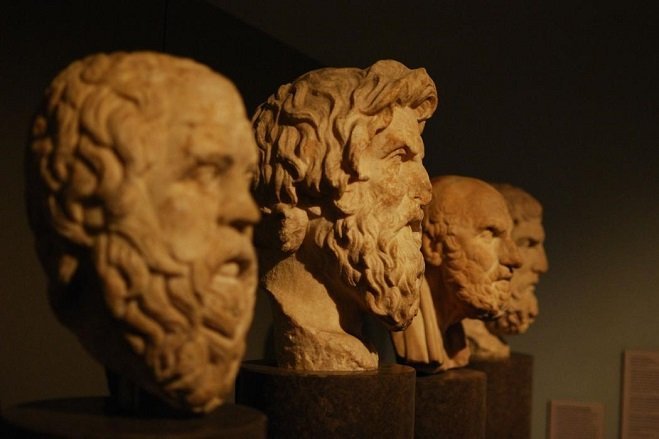In 343 BC, Aristotle was invited by Philip for the upbringing of his 13-year-old son, Alexander. According to Quintillian, a prominent mentor in oratory art, Aristotle said that he did not accept Alexander's upbringing on himself if he was not sure that the beginning of the sciences in the future, exposed to the best and most correct way, lead to perfectness. Ritter Dion Chrysostom, in one of his speeches, claims that the invitation of Aristotle was due to Philip's inability to train his son of "royal art." Philip usually knew him as a political actor, having the great desire to conquer Greece, Persia, and other countries. Plutarch, for example, speaks of the fact that Philippe was too interested in philosophical sciences and arts, music, and did not want to render Alexander's upbringing to an ordinary teacher.
From the testimony of the famous Elian, we read: "Philip Macedon was not only military affairs and not only had a gift of eloquence, but also highly valued education. " Thus, he provided great resources to Aristotle, and thanks to Philip, he was able to gain extensive knowledge in various fields, especially in animal science. Aristotle enjoyed great authority in the courtyard of Philip, and when the Aphinians sent the king a Legation after the 338th Battle of Heron, he made every effort to help them fill the losses and destructions that he had caused to the Greek cities. Aristotle was undoubtedly a great authority for Alexander. Wishing to understand the angry Alexander and to reassure King Aristotle, he wrote to him: "Irritation and anger are bound to turn against the lower ones, not against the higher ones. There are no equal to you. " Aristotle constantly gave wise advice to Alexander, so he did a lot of useful things. It is important to note Alexander's enormous interest in biology and especially in the zoology that he established during his second stay in Macedonia. The fact that Alexander was indeed well educated thanks to his talks with Aristotle can be judged by the following fact. When Alexander, leading his endless wars in the depths of Asia, did not always have books for reading. According to Plutarch's message, Tsarist Treasurer Gharpal sent to Alexander "The Writings of Philist, Many of the Tragedies of Euripides, with Sophocles and Eschil."
Aristotle had inspired Alexander and his love of medical art. The King was interested not only in this science, but, as can be deduced from his letters, he went to help his sick friends, appointing different ways of healing and treatment. At all, Alexander was naturally inclined to study science and read books. He considered and rarely talked about the fact that studying the Iliad was a good means of achieving military courage. There is another testimony to the extent to which Alexander valued the high science, and as a result there was a little misunderstanding between him and Aristotle, interesting to mention one of Alexander's letters to Aristotle. "Alexander apparently not only mastered the doctrine of morality and state, but also joined the secrets of the deeper teachings that the philosophers called" lips "and" hidden "and did not give them a broad voice."
Being already in Asia, Alexander understood that Aristotle published some of these teachings in books, and wrote to him an open letter in defense of philosophy, the text of which reads: "Alexander to Aristotle wants welfare! You did wrong, publish teachings intended for oral teaching only. How will we be distinguished from other people if these teachings to which we were educated are made public? I wanted to overcome others not only with power, but with knowledge of the higher things. Be healthy".

I love history, and I think this period in time was most interesting. Aristotle's mentorship of Alexander clearly had a great impact on his later life :) Thank you for a nice reading <3
Up vot
Thank you :)